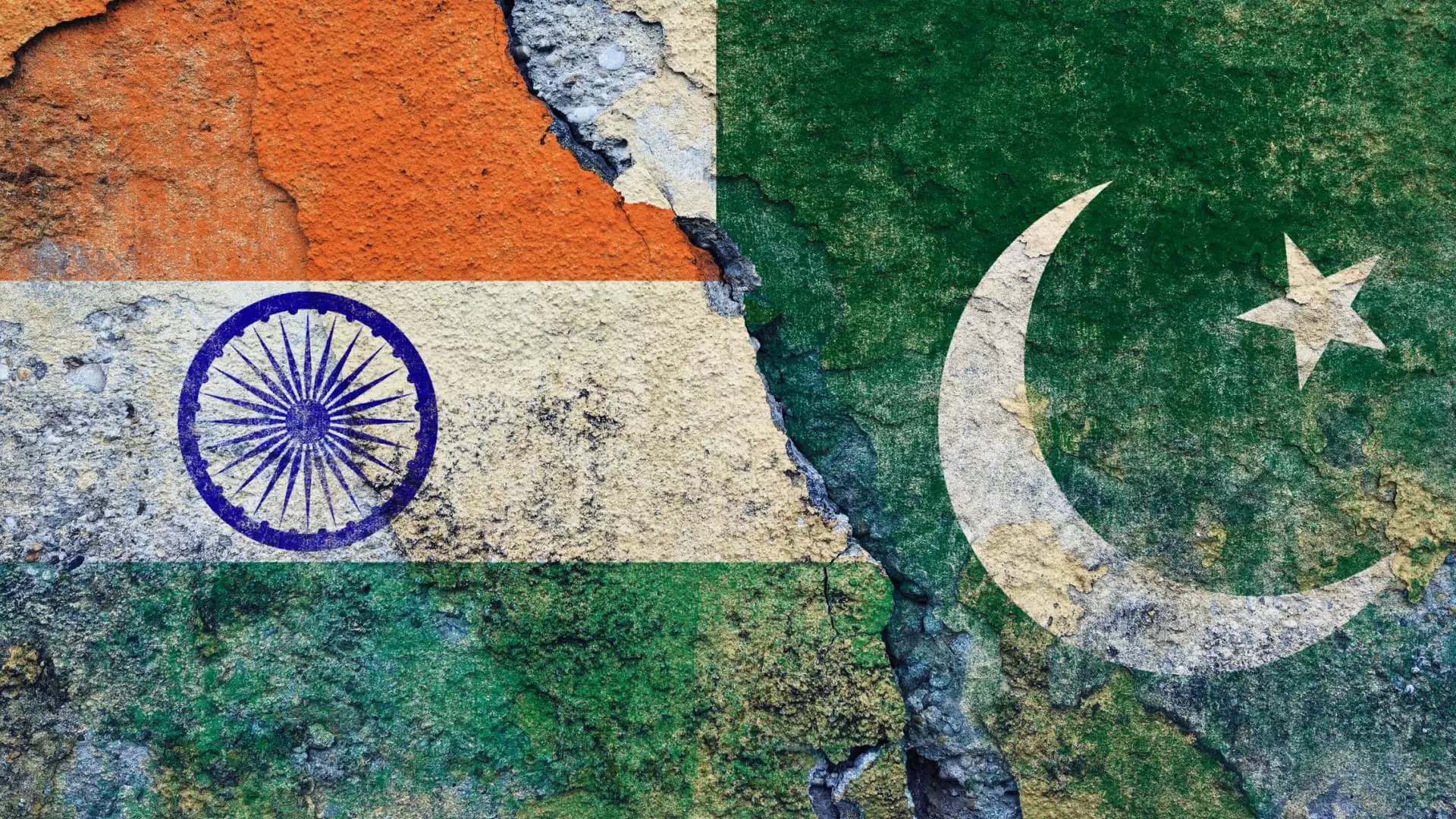The recent attempts by Britain and the United States to engineer a ceasefire between India and Pakistan have been a textbook example of the complexities involved in international diplomacy. As Foreign Minister David Lammy articulated during his visit to Islamabad, the ambition is not merely to halt immediate hostilities but to cultivate an environment conducive to lasting peace—an endeavor that teeters precariously on the brink of failure. The ceasefire, brokered after fierce exchanges of missiles and accusations, is certainly a step forward; however, one must question the sincerity and durability of this diplomatic effort.
The harrowing history of conflict between these nuclear-armed nations casts a long shadow over any newly-formed agreements. The backdrop of the Kashmir issue serves as an explosive reminder that dialogue has often been drowned out by the sounds of artillery fire. Although Lammy expressed optimism about building “confidence” between the two countries, it feels like a hollow promise. The term “confidence-building measures” has become a buzzword in diplomatic circles, but what does it truly mean if any goodwill is constantly undermined by political posturing, mutual distrust, and sporadic violence?
The Role of External Powers
The involvement of external powers, particularly the United States, complicates the narrative. While the U.S. can undeniably act as a mediator, there is a stringent need for an impartial approach. President Trump’s calls for a third-country venue for peace talks lacks a clear roadmap. The insinuation that such talks might take place elsewhere is almost patronizing, as it undermines the importance of addressing the root issues on the ground. Critics may argue that the United States harbors its own geopolitical interests in the region, which can shape its diplomatic actions more than a genuine desire for peace.
Compounding these concerns is the fragile status of treaties like the Indus Water Treaty. India’s decision to suspend its participation casts a dark cloud over water security for Pakistan, whose agricultural landscape is already vulnerable. Lammy’s caution to “meet treaty obligations” should serve as an alarm bell for those at the negotiating table, as breaching such agreements can catalyze escalatory responses that transform diplomatic tensions into full-blown conflicts.
The Perils of Political Machinations
Political rhetoric can often serve as a mask for the machinations at play. India’s government, especially under Prime Minister Narendra Modi, has framed its military actions as defensive measures. This narrative simplifies a complex situation and allows for the dangerous myth that violence equates to national strength. Lammy’s statements about the need for dialogue are fundamentally vital, yet they risk being drowned out by the drums of war if not paired with unwavering pressure on both sides to commit to real dialog.
One must also question whether Britain and the United States are genuinely devoted to an equitable peace process or if they are merely acting out of strategic interests. Much like their involvement in regions such as the Middle East, past actions have shown that immediate gains often overshadow long-term stability.
The Specter of Terrorism
Lammy’s remarks on the importance of countering terrorism as a persistent blight are significant. However, this “terrible blight” can feel disingenuous when one considers the conditions that feed into extremism and violence. Rather than simple condemnation, what is required is a comprehensive approach to understanding why terrorism thrives. It is imperative to address social grievances, economic desolation, and historical injustices that push people toward radicalization. Without this multi-faceted approach, counter-terrorism efforts may prove futile.
In the grand theater of international relations, the question looms large: At what point do we tell aggressors that enough is enough? The answer lies not in ambiguous statements but in decisive actions that prioritize human lives over political capital. The road to peace is often arduous but adopting a sustained and genuine commitment to dialogue based on equality and justice could pave the way. With the involvement of major powers in South Asia, real progress hinges on our ability to see past short-term objectives and embrace a deeper commitment to fostering enduring peace.

Leave a Reply